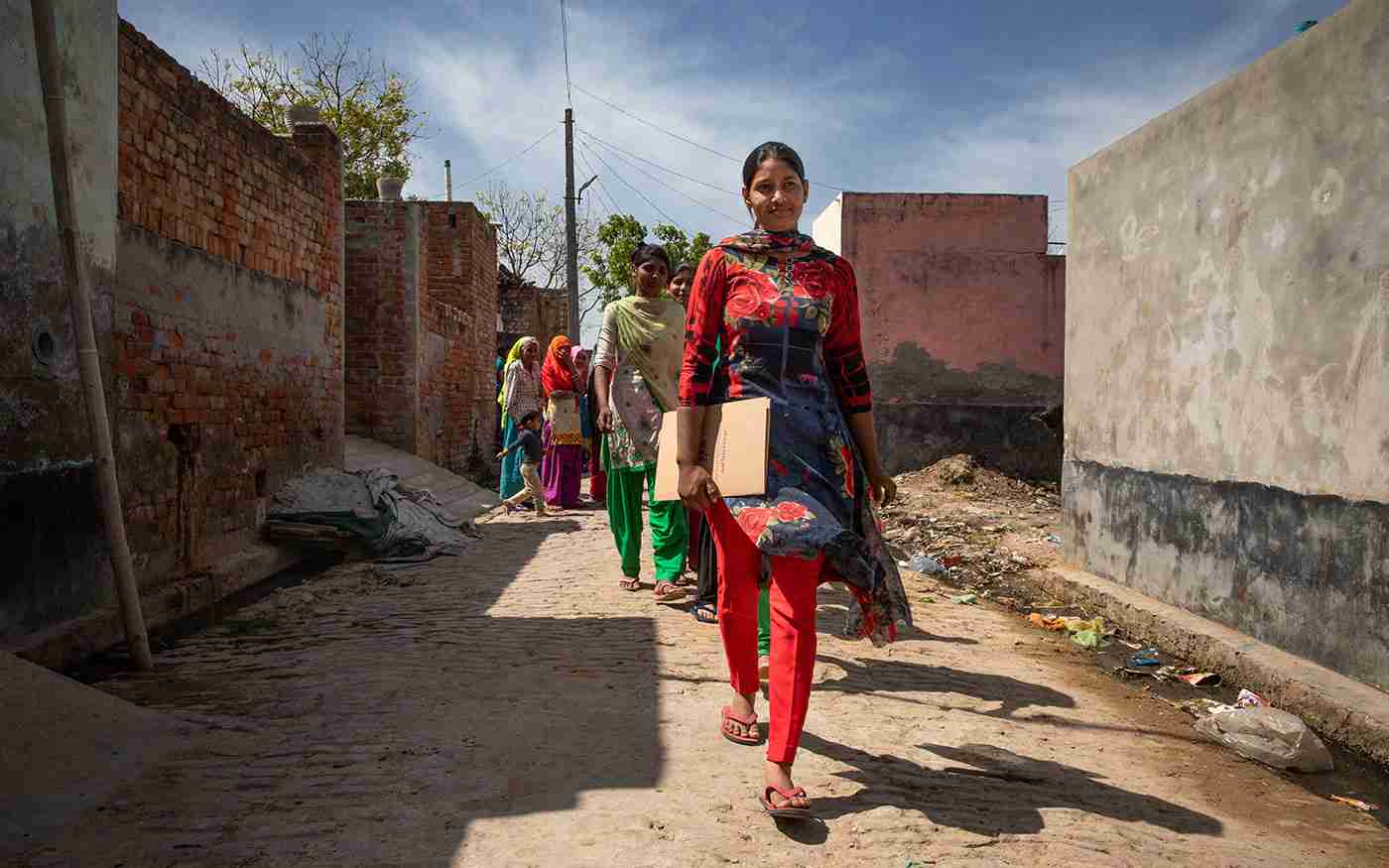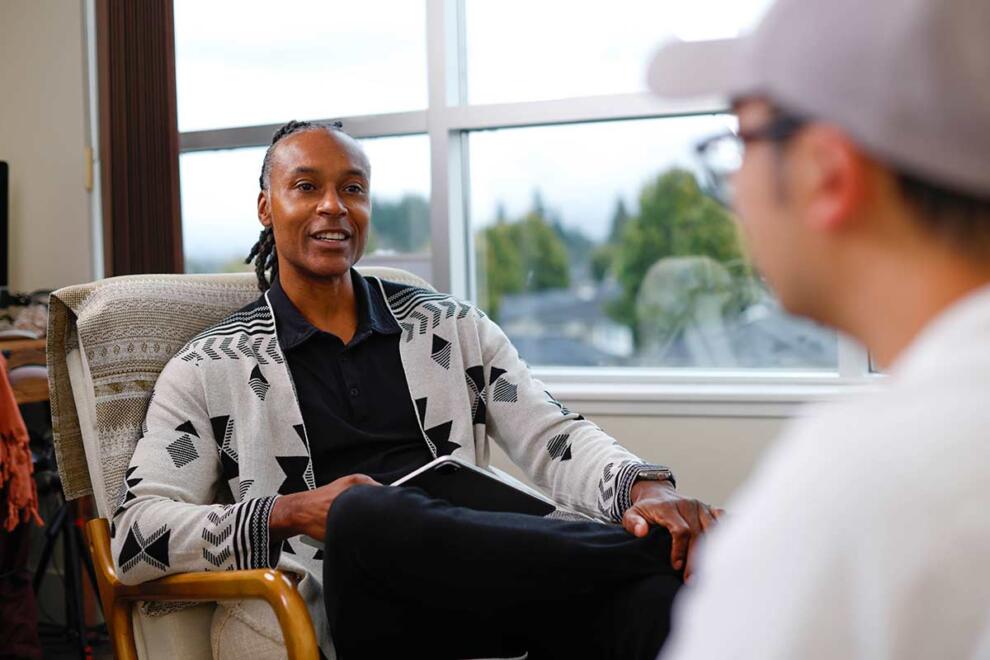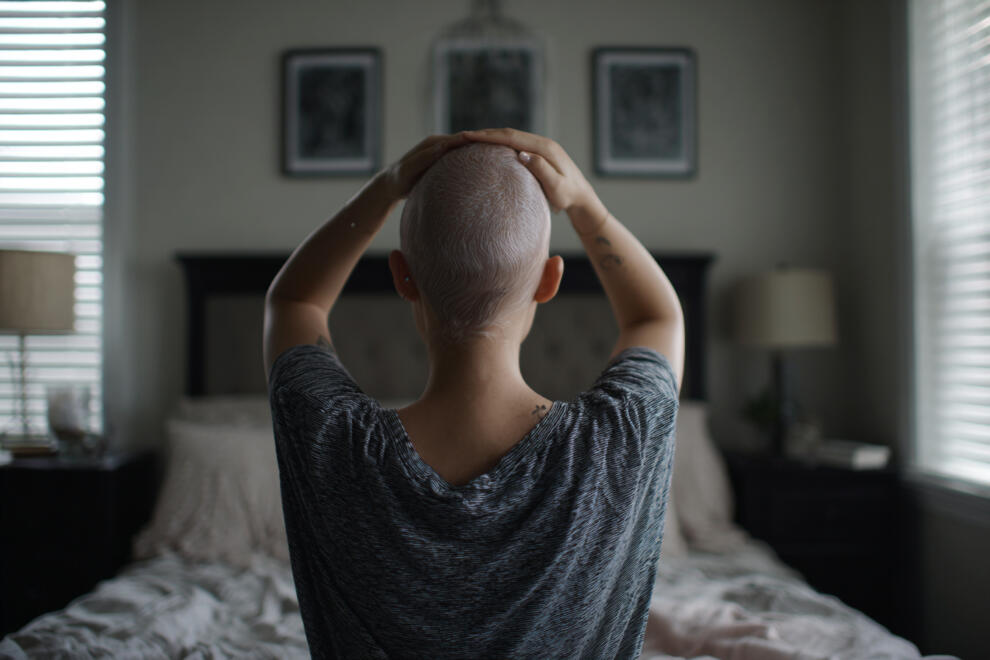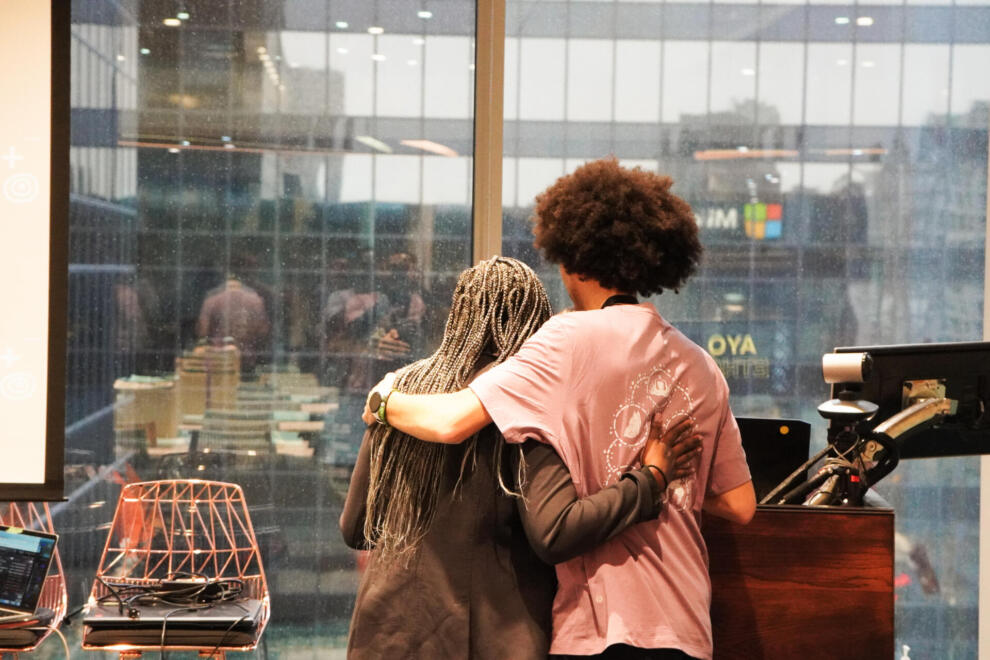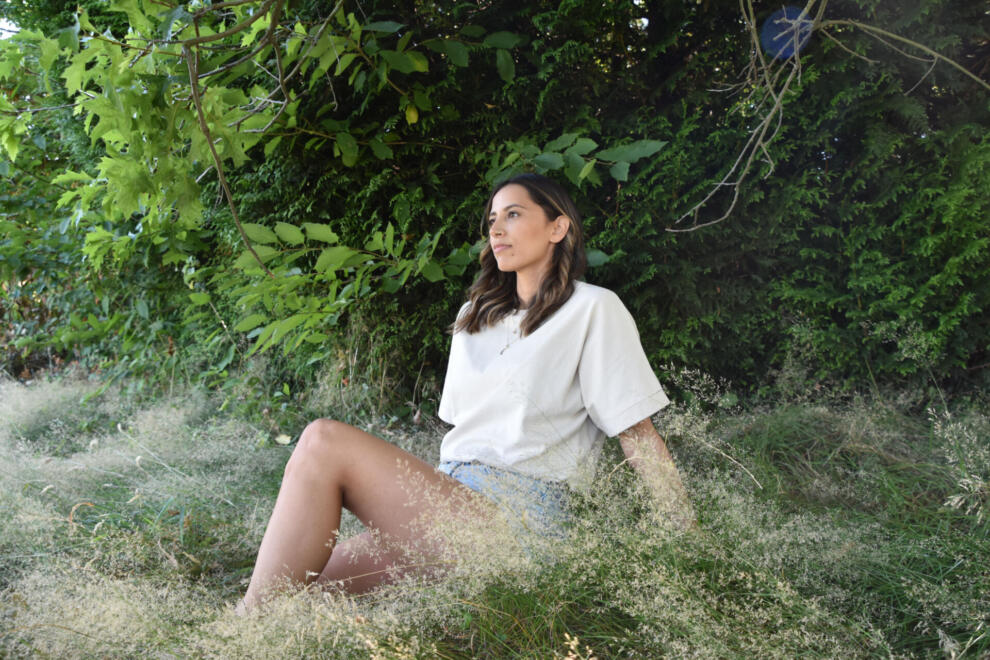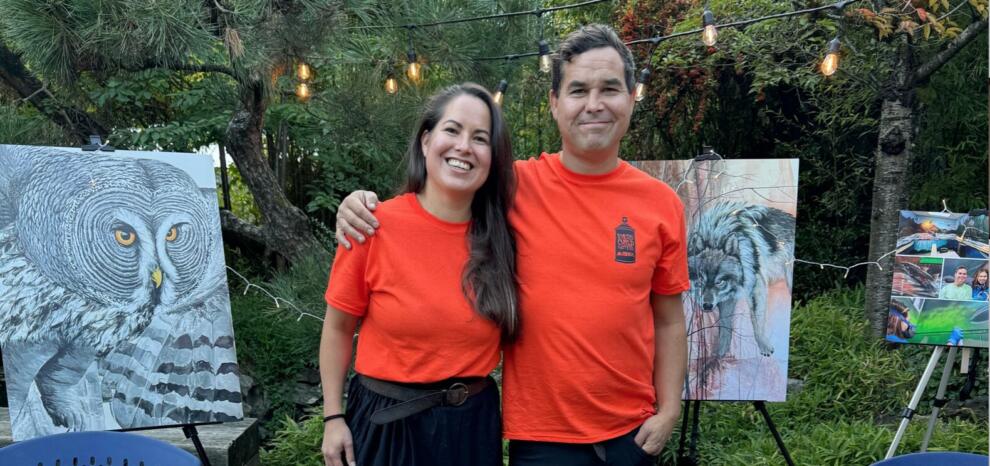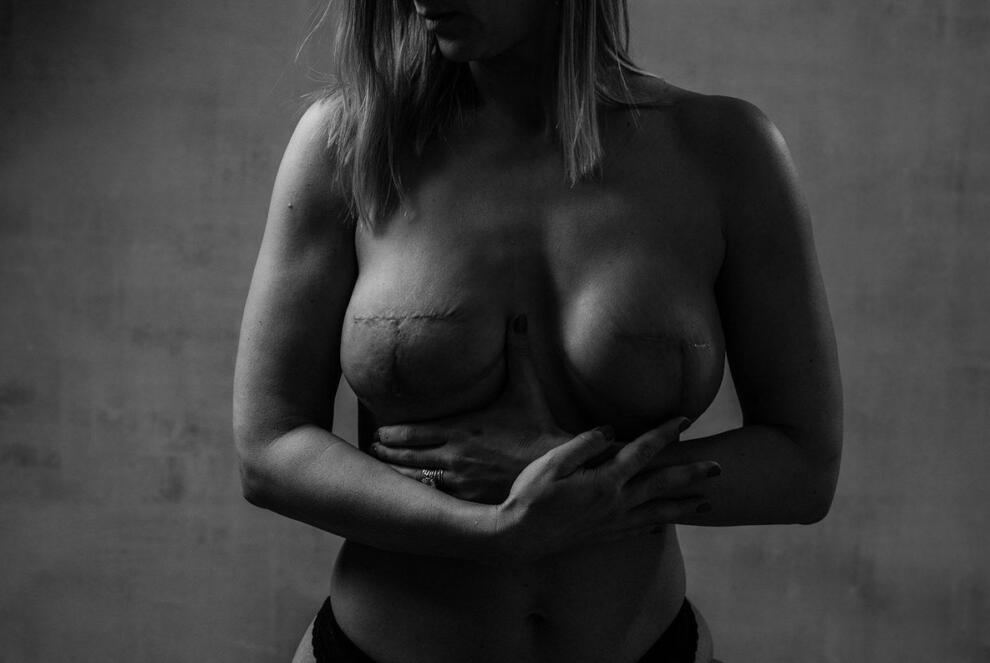Gender Equity Now
Fuelling equity through education
Photography by Christy Schmid
“More domestic labour, greater risk of violence, higher rates of unemployment, worse mental health.” These are the experiences of women in 2020.
In 2025, women continue to face significant challenges: disproportionate domestic labor, heightened exposure to gender-based violence, elevated unemployment rates, and deteriorating mental health. While the acute phase of the COVID-19 pandemic has passed, its long-term impacts have exacerbated existing gender inequalities worldwide.
“Limited gains in gender equality and women’s rights made over the decades were rolled back during the pandemic—and many have yet to fully recover,” stated UN Secretary-General António Guterres in a recent address.
The pandemic underscored the critical importance of gender equality for the safety, well-being, and inclusion of women and girls. In remote and rural communities, women face compounded barriers; geographic isolation continues to limit their access to healthcare, economic opportunities, and support systems.
“The gender digital divide in rural areas continues to deepen the marginalization of women and girls, restricting their ability to access education, essential services, digital finance, and life-saving information,” noted Phumzile Mlambo-Ngcuka, former executive director of UN Women, in a reflection for the International Day of Rural Women.
More domestic labour, greater risk of violence, higher rates of unemployment, worse mental health. These are the experiences of women in 2020. The global health crisis is exacerbating gender inequality worldwide.
EDUCATION FOR EMPOWERMENT
Dhirendra Pratap Singh is familiar with the challenges faced by women and girls in rural communities. Singh is the founder of the Milaan Foundation, a non-profit that works to empower girls in India. Based in Gurugram, a city in northern India, Milaan’s mission is to empower 10 million girls by 2030. Growing up in India, Singh was very aware of the impacts of the caste system on social standing and access to opportunities.
“My mom never was able to complete her secondary education… She didn’t know about a lot of career options available,” Singh says. He hopes the next generation of women won’t experience the barriers his mother faced.
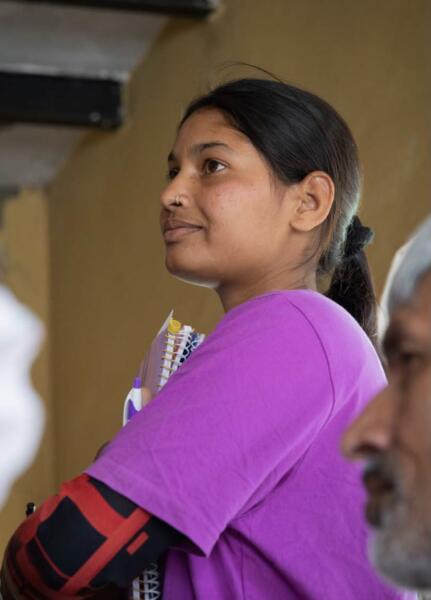
To achieve its mission, Milaan runs two inspiring initiatives: the Milaan School and the Girl Icon Program. In 2007, the organization founded the Milaan School in the remote village of Kaintain in Uttar Pradesh, India’s most populous province with 200 million people. The school has grown from 10 students, now serving over 560 children every year.
According to a report by India’s National Commission for Protection of Child Rights, more than 40 per cent of girls in India between the ages of 15 to 18 do not go to school. Milaan is committed to addressing the root causes of this disparate statistic by nurturing homegrown leaders. The Girl Icon Program provides young women with educational opportunities and supports girls in encouraging their peers to return to school.
Milaan empowers Girl Icons through a complex and robust framework of three pillars (leading self, leading others, leading social change) and four dimensions (know it, learn it, live it, change it). The program has impacted more than 7,000 girls to date.
“They have collectively stood up against discrimination, violence and abuse — and won,” says Singh.
“We are considered [a burden] on our parents,”says Rajkumari (last name withheld), a Girl Icon Program graduate. She explains that for many parents, especially in poor, rural families, paying for a girl’s education is a difficult decision when they are also expected to pay a dowry before marriage.
With access to education, Rajkumari is certain girls will be able to speak up for themselves and be valued as important individuals in society. With the leadership skills she gained through Milaan, she’s helped get 16 girls back into school.
“If you have made an identity for yourself and you are so capable and you know how to put forward your thoughts, then no one will leave you behind,” she asserts.
Khushboo (last name withheld), another Girl Icon Program graduate, is from Lucknow, where many girls are not allowed to leave the house. She wanted to create a peer group with fellow Muslim girls, but came up against many “no’s” from parents.
“They say ‘what is the point of educating you when ultimately you have to cook, clean and wash; nothing beyond that’,” she explains. After some convincing, some parents allowed their children to study with Khushboo, who had noticed that girls who did attend school were taught at a very basic level. “I want to become a social worker,” she says “a social worker who can solve each woman’s, each girl’s problem.”
As Rajkumari, Khushboo, and the many volunteers and staff at the Milaan Foundation know, girls with education, self-confidence and leadership skills can change the world.
“Over the next decade and beyond, if we are to solve the most pressing issues of our time, we need to tap into the dynamism of adolescent girls… they have the potential to be the most creative forces for social change,” the Milaan Foundation said.
This is not just an ambition, but a reality. Women are solving one of the most pressing issues of our time: this pandemic. Countries with the lowest number of COVID-19 cases have one thing in common: women in leadership roles.
LINKING AND LEADING
Eleven thousand miles away from India, Minerva BC, based on the west coast of Canada, works towards a similar mission: empowering women and girls to reach their full potential.
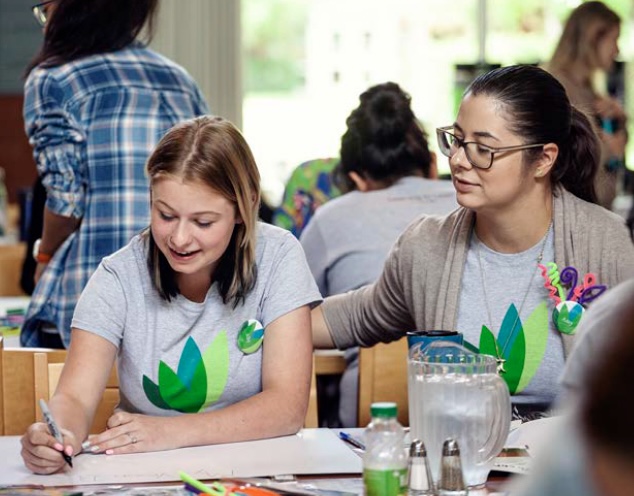
Like the founders of Milaan, Minerva BC’s leaders are aware of the barriers women face, particularly in rural communities. Since 1999, Minerva BC’s programs have impacted more than 4,000 people.
“Minerva’s programs are designed to help women develop their unique voice, so that they can step into their full leadership potential,” says Tina Strehlke, CEO of Minerva BC.
Strehlke discovered Minerva in 2001 when working as an employment counsellor. She referred many of her clients to Minerva’s Women Helping Women Work program, which connects participants with accomplished women leaders who act as mentors. These connections are especially valuable for clients who are immigrants or newcomers, and for women who have been out of the workforce for many years. After admiring Minerva BC’s work for more than 15 years, Strehlke became its CEO in 2017.
Through a variety of robust programs, Minerva BC works to remove the personal, financial and professional barriers that women face.
“We work with self-identified girls: starting in grade 11 with leadership programs for young leaders; programs for emerging and established self-identified women; and organizations looking to create more inclusive, equitable and diverse work environments,” Strehlke explains.
“Everyone has leadership potential,” reads the tagline on Minerva BC’s Learning to Lead program web page. The Learning to Lead program is open to female, transgender and non-binary youth in grade 11 and promises three days of transformative workshops, self reflection and mentorship. Despite the setbacks presented by the COVID-19 pandemic, the program saw a 50 per cent increase in demand from the previous year.
In a message to the Minerva community, Strehlke emphasizes that women leaders are paving the way for crisis management: “If Dr. Henry, Dr. Tam [two of Canada’s top public health officials] and Jacinda Ardern [Prime Minister of New Zealand] aren’t enough to convince you that it’s time to double down on women’s leadership, these amazing young people will.”

Cicely Belle Blain
Editorial Director (they/them)
Cicely Belle is a Black, queer writer, activist and anti-racism consultant originally from London, UK. They are the founder and CEO of Bakau Consulting, a social justice informed equity and inclusion consulting company based in Vancouver, BC where they work with clients across six continents to enhance compassion, respect and a commitment to anti-oppression in a diversity of industries.
As a founder and former organizer of Black Lives Matter Vancouver, Cicely Belle is passionate about liberation work, systems change and radical empathy for a better world. In 2018 and 2020, they were listed as one of Vancouver’s 50 most powerful people and in 2019, as one of BC Business’s 30under30. They are the author of Burning Sugar and an instructor of Executive Leadership at Simon Fraser University.
